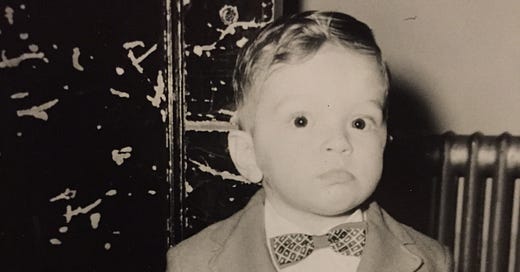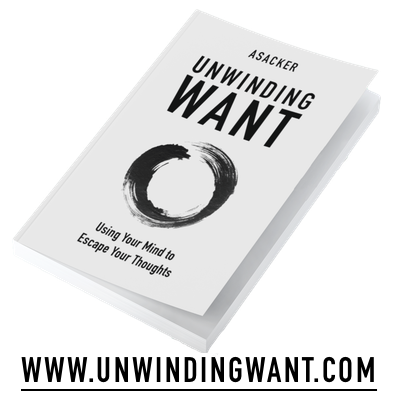“Think of me as a fellow patient in the same hospital who, having been admitted a little earlier, could give some advice.” ~ C.S. Lewis
I received an interesting comment on my last post:
“Love (and hate) this so much. So very much on point.”
What struck me about that response is how accurately it reflected my own feelings as I was writing. That’s the undercurrent of everything you read here: it’s personal. When I grapple with the gnawing feeling of distraction in a post, it’s because I’ve been wrestling with my own wandering attention. When a piece explores the difficult dance of creativity, it’s a reflection of my current struggles. And when I delve into the ethos and complexities of leadership, it’s not from a theoretical standpoint. It’s born from countless hours spent navigating the dynamics of teams and organizations, from the perspective of an advisor, a leader, a former CEO, and a fellow team member.
The confusion I sometimes express about the state of things is genuine—rooted in my own observations and experiences. For example, my first book, Sandbox Wisdom, published around the turn of the century, centered on the idea of leadership and business as a means to enhance people’s felt quality of life—customers’, employees’, partners’, community members’, everyone’s.
Looking at the landscape since then, it’s hard not to feel a certain heartbreak about the pervasive issues of rising inequality, work environments that erode well-being, and the prevalence of loneliness—all increasingly driven by cultures that elevate control, aggression, and self-interest, in stark contrast to the ideal I once envisioned. And yet, that heartbreak is also what fuels my continued exploration, my refusal to give up on the possibility of something better.
I also write to remind myself of what I already know. It’s fascinating that the ancient understanding of mindfulness literally translates to “to remember. This highlights a crucial insight: to truly break free from the limiting ideas we’ve internalized, and embrace a life of possibility rather than fear, we must diligently remember our inner intelligence and natural wisdom—we must embrace who we were before we absorbed the subtle scripts and unspoken rules that shape and limit us.
This act of self-remembrance reveals a profound and seemingly paradoxical truth. We must also remember, day after day, the ways in which we’ve been conditioned to feel a perpetual sense of lack, a subtle pressure that keeps us tethered to a fearful, scarcity mentality. We need to recall the subtle and not-so-subtle ways we’ve been “hypnotized” to think, feel, speak, and behave in certain patterns. Only by consciously remembering the ingrained “teachings” we’ve absorbed can we begin to let them go. This is how we loosen the grip and begin to step into the fullness of who we truly are.
To support that unfolding, I’m currently developing a couple of consciousness-shifting experiences. One is designed for individuals who want to reconnect with their true nature and access more ease, passion, and purpose in their lives. The other is for leaders of groups and organizations—those ready to see through outdated paradigms and limiting assumptions that silently undermine their impact and potential.
If this resonates with you, I’d love your feedback on these new offerings:
Which aspect of an individual consciousness-shifting experience would most appeal to you? What specific challenges would you hope it addresses in your life?
For those in leadership roles: What outdated paradigms or limiting assumptions do you find most difficult to overcome in your organization?
What format would be most valuable to you—short videos, workshops, immersive retreats, or something else entirely?
What would make these offerings worth your investment of time and resources?
I’m eager to hear your thoughts—what stirs your imagination, what lands, what questions arise, what do you see from where you are. And if you know someone who might be hungry for this kind of exploration, please share this with them. We’re not meant to do this kind of remembering alone. The more we wake up together, the more possible the future becomes.
Please comment with your thoughts, or to correspond privately, use this contact form.
P.S. I had a great conversation with Mark McCartney on his “What is a Good Life?” podcast—it’s called The Art of Responding to Life. If that’s your kind of thing, give it a listen and let me know what you think.
Stay passionate!






Understanding, exploring and recognizing “the problem” through mental models that vibe with experience and knowing it as a shared problem of humanity. The thing we wrestle with will bless us. We must know the thing we wrestle with. So that could be one aspect to dig into for what you have planned. I think spontaneously a consciousness shift could begin. There is no escape, only the struggle, punctuated with transcendence. Group Zoom will be good. Start small, without big plans.
Finally, someone not telling me to simply let it go!
“Only by consciously remembering the ingrained “teachings” we’ve absorbed can we begin to let them go.”
It’s paradoxical, in order to “let it go” we have to remember it, maybe all (the worst) of it, to learn from it, in order to let it go.